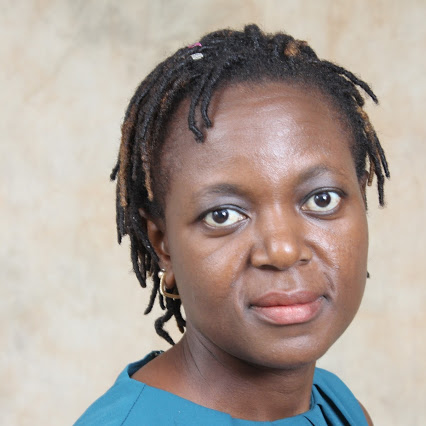
The Zimbabwe Electoral Commission was established in 2004 after the restructuring of the country’s electoral system. Since the 1980’s elections had been run by the Registrar General’s Department through the Electoral Supervisory Commission, which was later disbanded to give way for ZEC.
By MIRIAM TOSE MAJOME
The Registrar General’s department was responsible for voter registration and managing the election process. Evidently this situation was untenable as the Registrar General by virtue of its office cannot be independent and impartial.
The Registrar General, Tobaiwa Mudede oversaw the management and administration of elections for a very long time to the extent that he is synonymous with announcing election results in his inimitable dry and sombre manner.
A big component of the population still thinks the Registrar General’s department is still in charge of managing elections and registering voters. It is instructive to look beyond our borders for comparison to see how ZEC compares in aspects of independence and impartiality.
South Africa -The Independent Electoral Commission
The South African Independent Electoral Commission is responsible for managing the country’s elections. Its vision statement as stated on its website is that it stands to strengthen the constitutional democracy through the delivery of free and fair elections in which every voter is able to record his or her informed choice. The Commission was established in terms of the Constitution and its main task is to safeguard democracy in South Africa.
The South African Constitution was passed in 1996 after the biggest inclusive constitutiona-making exercise in Africa.
- Chamisa under fire over US$120K donation
- Mavhunga puts DeMbare into Chibuku quarterfinals
- Pension funds bet on Cabora Bassa oilfields
- Councils defy govt fire tender directive
Keep Reading
The Commission had been established in the provisional Constitution of 1993 and its first true test was the country’s first democratic elections which took place in 1994.
It was able to manage the elections very well and from then on earned the respect of the general populace and political players.
The IEC is regarded very highly and is counted among South Africa’s most important institutions that support the democracy process in that country. It receives less of the suspicion and scepticism with which ZEC is perceived.
It is not openly regarded as an extension of the ruling ANC in the same manner ZEC is regarded as a Zanu PF project set up to ensure electoral victory for Zanu PF. Public perceptions matter greatly because elections must be perceived as being free and fair and this is a subjective process.
ZEC has its work cut out, for it is vital to win the hearts and minds of the nation at large so that they view it is a credible and trustworthy impartial referee.
ZEC is much younger than the SA Commission, so many of its problems are teething problems which it will hopefully outgrow.
The IEC is very busy and handles many complaints from South African political parties as they spar against each other’s conduct usually involving political violence and other politically-related election shenanigans. The IEC adjudicates what is within its legal reach.
Kenya — The Independent Electoral and Boundaries Commission (IEBC)
The IEBC was established in terms of the Kenyan Constitution and is tasked with conducting and supervising referenda and elections in Kenya. Its role and responsibilities mirror ZEC’s such as voter registration, delimitation of constituencies, voter education, deriving a code of conduct for candidates and parties and many other similarities. However whereas ZEC is dogged by its own problems and allegations of impropriety they are nothing compared to the Kenyan Commission.
There is never a dull moment in Kenyan elections and unfortunately the histrionics are always at the expense of people’s lives.
Kenyan opposition parties and the country at large have almost no confidence in the IEBC and its commissioners, alleging impartiality and manipulating the outcome in favour of the ruling party. In many respects and not just political Kenya and Zimbabwe could be reluctant Siamese twins.
The scepticism surrounding the IEBC grows bigger during election times as the enmity between rival parties and factions grows more deadly.
IEBC Commissioners have been replaced more than once in controversial circumstances when the pressure against them and their alleged misconduct mounts.
Opposition parties are forever piling pressure on commissioners to step down by threatening boycotts as happened in the very heated 2017 elections.
The scepticism against the Commission was vindicated when the Kenyan Supreme Court nullified the results of the August 2017 presidential elections which had been won by Uhuru Kenyatta and his Jubilee Alliance. In the wake of the much disputed 2017 elections the Kenyan Supreme Court judges fired hard volleys at the IEBC openly criticising it for gross incompetence and bias.
The court found that the electronic data had been tampered with by the IEBC itself and, therefore, the election results were unreliable and had to be nullified and the presidential election redone.
Similarly the biometric voter registration (BVR) system instituted by Zec in 2017 has been heavily criticised for having systemic flaws, but no entity has brought charges of tampering with the electronic data.
The biometric voter registration (BVR) exercise can be deemed to have been successful unless the much vaunted independent audit reveals otherwise.
However, the real test of the inviolability of the BVR system will be the impending elections in July.
Hopefully, Zimbabwe can avoid or at least minimise the problems that dogged Kenya’s elections like the inexplicable delays and frequent break downs of the electronic process and refusal or failure by Commissions to disclose important public information.
If the same problems manifest In Zimbabwe they will only serve to entrench the negative sentiments against the electoral regulator.
Miriam Tose Majome is a lawyer and teacher. She can be contacted on [email protected]











